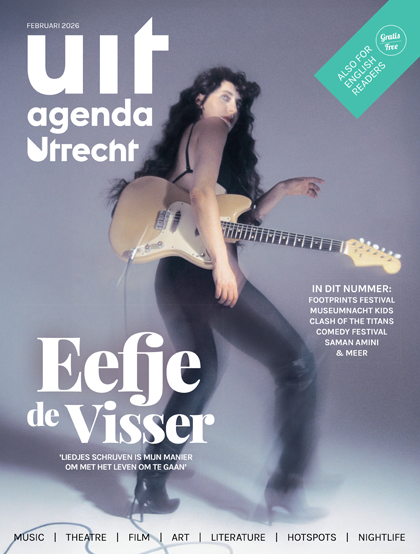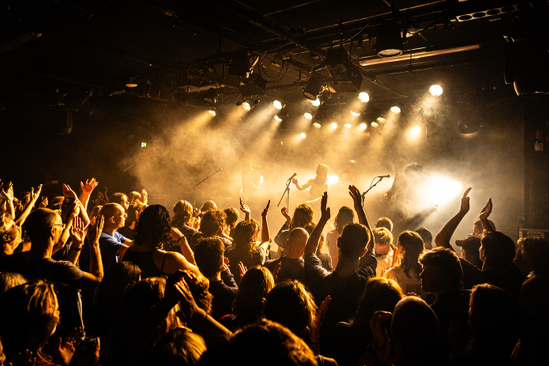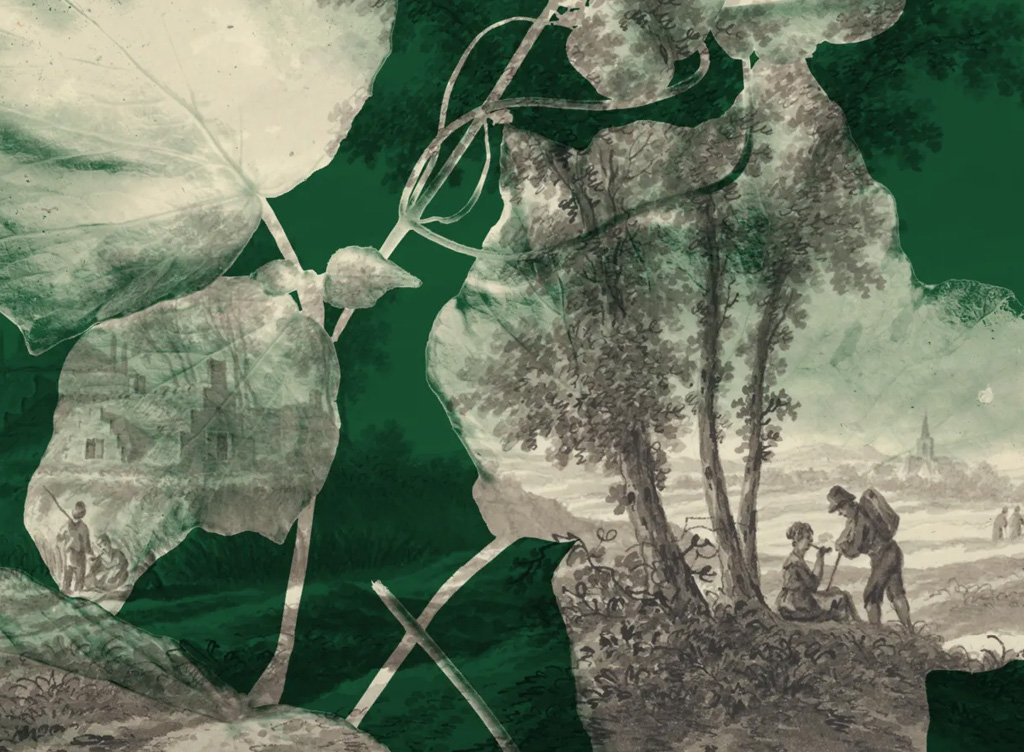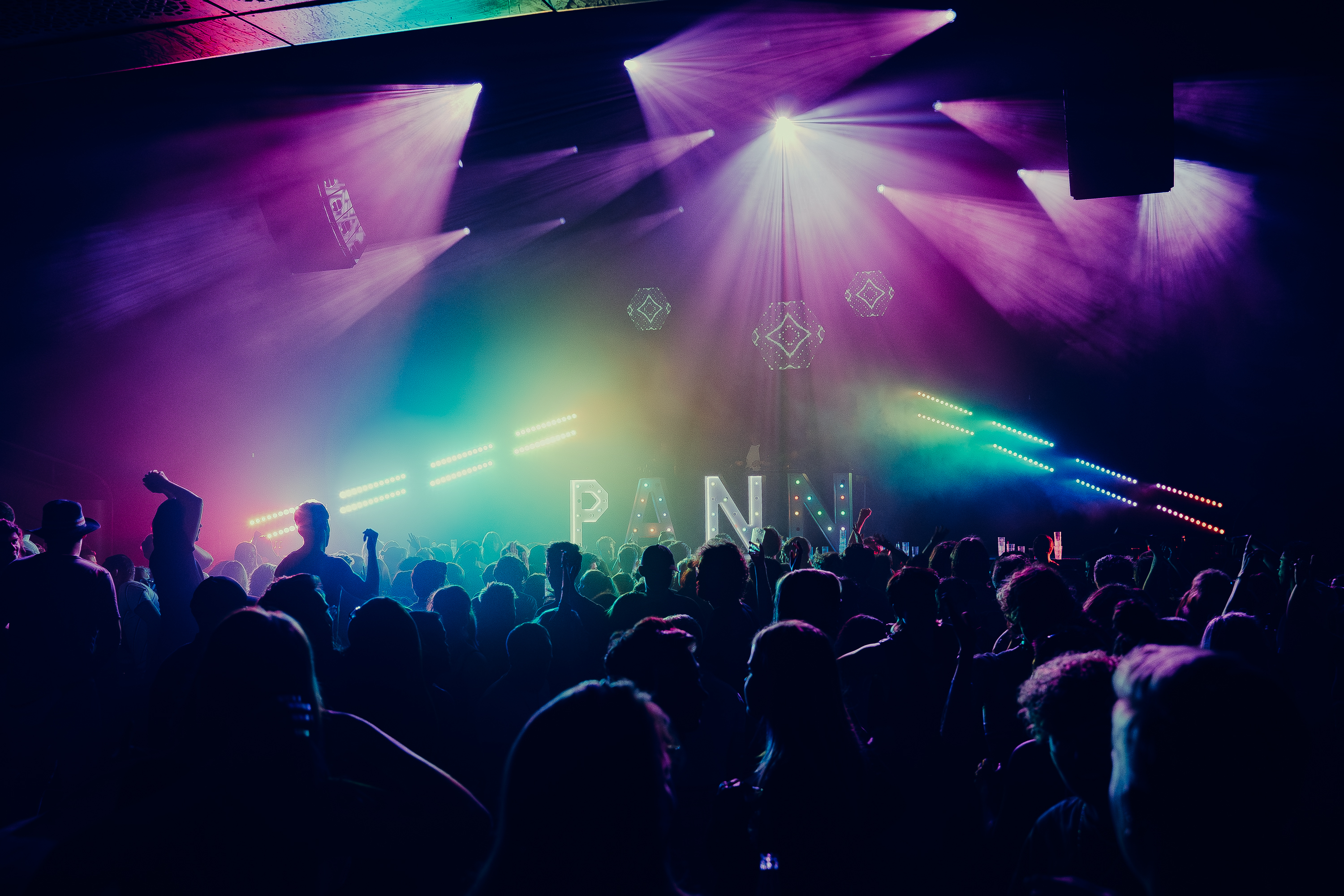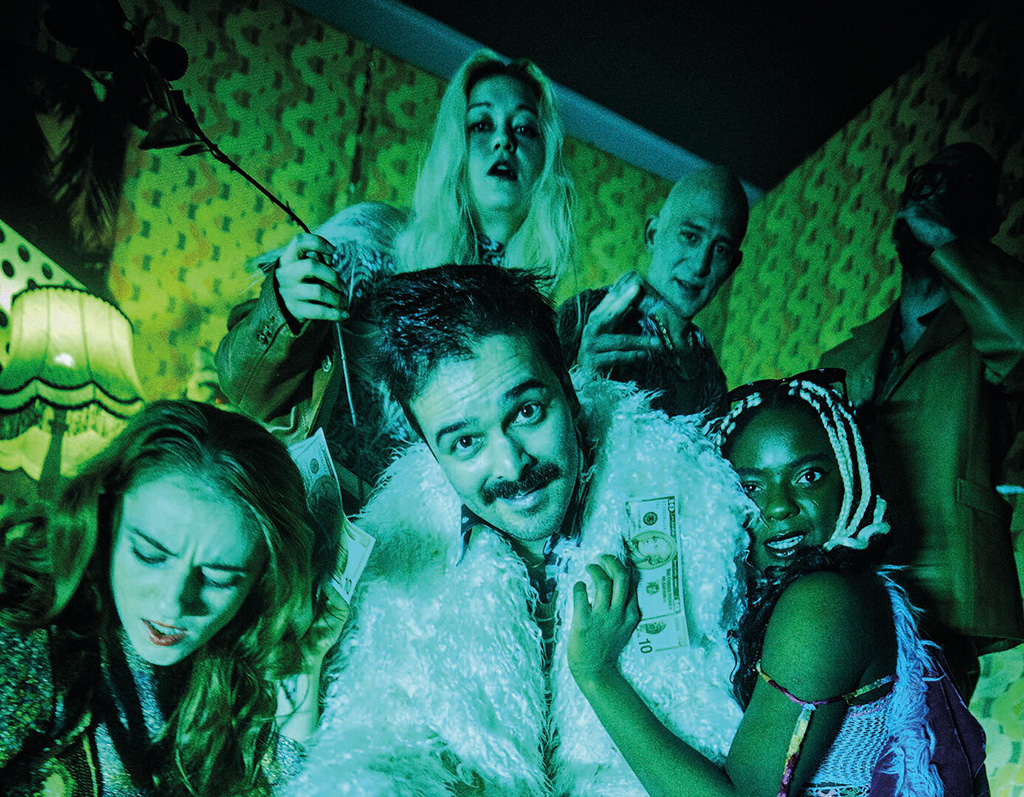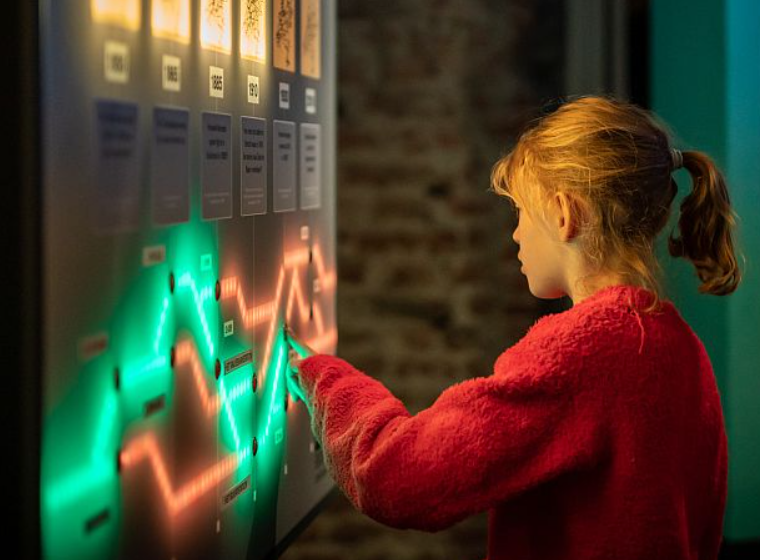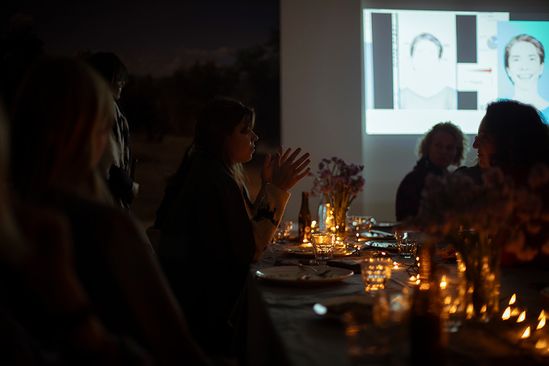Her latest album Coming Up for Air partly came about in the Utrecht Werkspoorgebied. It’s a musical breather in a period of political chaos and instability. Roufaida: ‘I mould thorny issues into a danceable shape.’
Roufaida started her research about five years ago. She wanted to explore how she could merge North African music with Western influences in her songwriting. ‘I grew up in the Netherlands, surrounded by white people. For a long time, I knew instinctively that there wasn’t much room for my Moroccan side. I later felt a growing need to bring it into the spotlight.’
This process put her in touch with her inner self. ‘Music has become an important vehicle on my path to an uncompromising existence. A life in which I make no concessions to the expectations of society.’
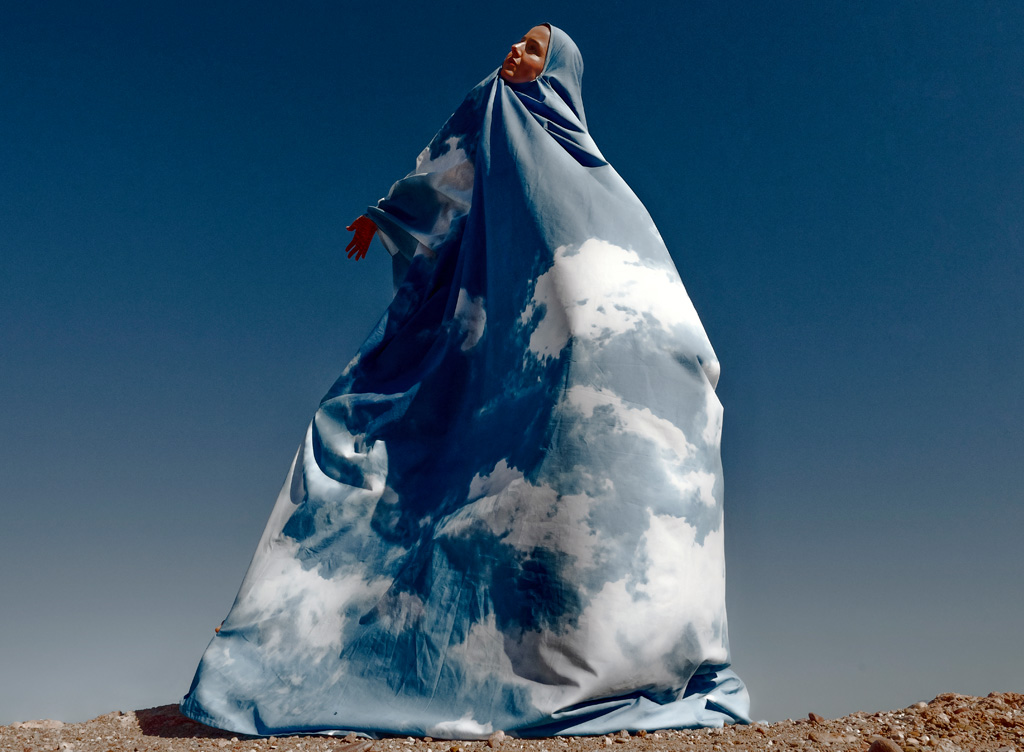
Riffian sounds
She sings in three different languages: Riffian (or Tamazight), Arabic and English. Her music interweaves guitar with traditional North African instruments, such as the guembri. It comprises both an electronic pop sound and the sounds of her Riffian roots, the Amazigh culture from the Rif Mountains in the north of Morocco. ‘Even though I don’t speak the language, it’s a way for me to honour the culture. My parents spoke Arabic with us at home, because it’s a useful language throughout the world. This meant that I missed out on some of my cultural heritage, which I think is a pity.’ For a long time, the Amazigh language and culture was shunned by the Moroccan authorities and deemed to be inferior. ‘Introducing this culture into my music now feels like a form of protest. As if I’m reclaiming something that I’m part of,’ Roufaida explains. This is why she sings a Riffian chant on her new album, the ralla buya-refrain. ‘It’s a series of sounds that don’t have a concrete meaning, but which are a familiar theme in Riffian music.’
Protest song
In Coming Up For Air, she sketches a contrast between light and dark. ‘I bring up difficult subjects, including the genocide in Gaza, the situation on the European borders and the inequality that I experience as a woman of colour. These are thorny issues, but I’ve chosen to mould them into a danceable shape,’ she says. ‘We’re faced with so much misery and woe on the news and social media, that we tend to shy away from difficult subjects. I’m trying to use my music to lighten up some of these topics and make them easier to approach. Protesting can be fun, you know.’
She released the opening track, a protest against the genocide in Gaza called Ken Ness, around the commemoration of the Nakba; the ethnic cleansing of Palestinian Arabs between 1947 and 1949. It’s based on a poem by the Palestian poet Mahmoud Darwish and accompanied by a video clip made by Palestian film makers. ‘I created this piece to show the contrast between something intensely human, and the dehumanisation of the Palestian people: their resilience, their longing for home. I wanted to show more than the victims and statistics published in the media.’
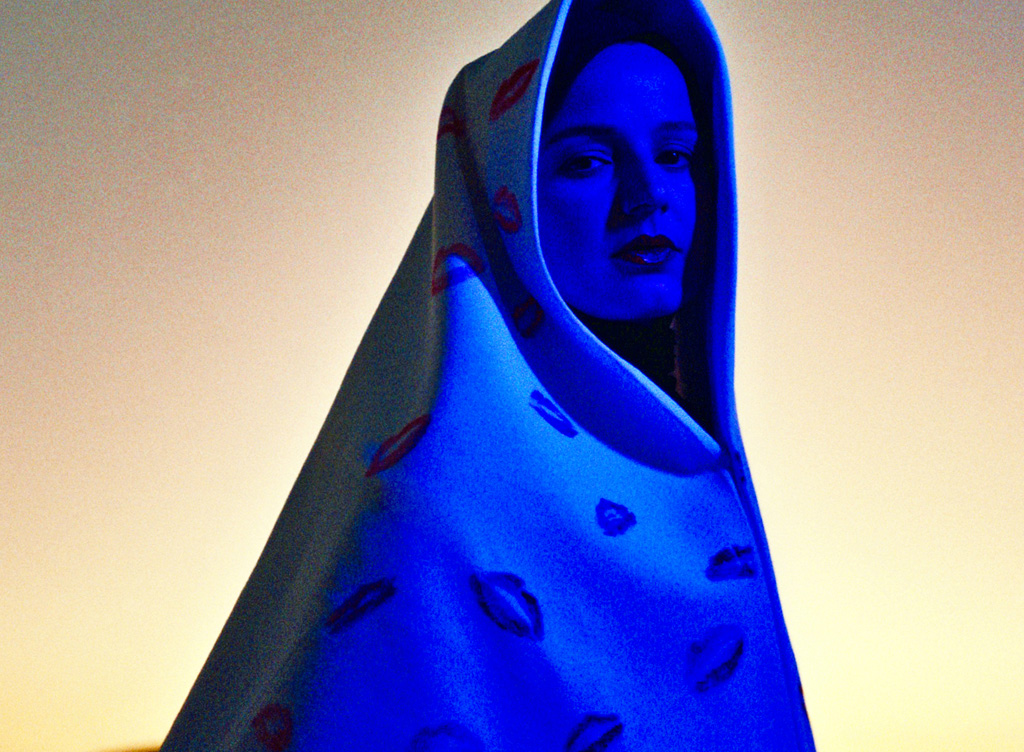
Breather
Roufaida was inspired by artists such as Björk, Arooj Aftab, Rosalía and Sevdaliza. ‘They bridge the gap between worlds and don’t conform with the status quo, allowing something unique to evolve. I admire the way that Rosalía has found a modern-day context for flamenco, introducing this local genre to wider audiences.’
She hopes that her own concerts will offer people a breather, a chance to catch their breath. ‘When I’m on stage, I experience a real dialogue with the audience,’ she says. ‘Not literally obviously, but in terms of energy: give and take. This feeling of reciprocity is what keeps me going.’
And if there’s one message she’d like people to hear in Coming Up for Air? ‘It’s this: nobody is free until we all are. If human rights are being violated somewhere in the world, they’re wavering everywhere. The situation in Gaza or Congo also reflects the values we uphold in Europe.’
27 November 2025, EKKO

